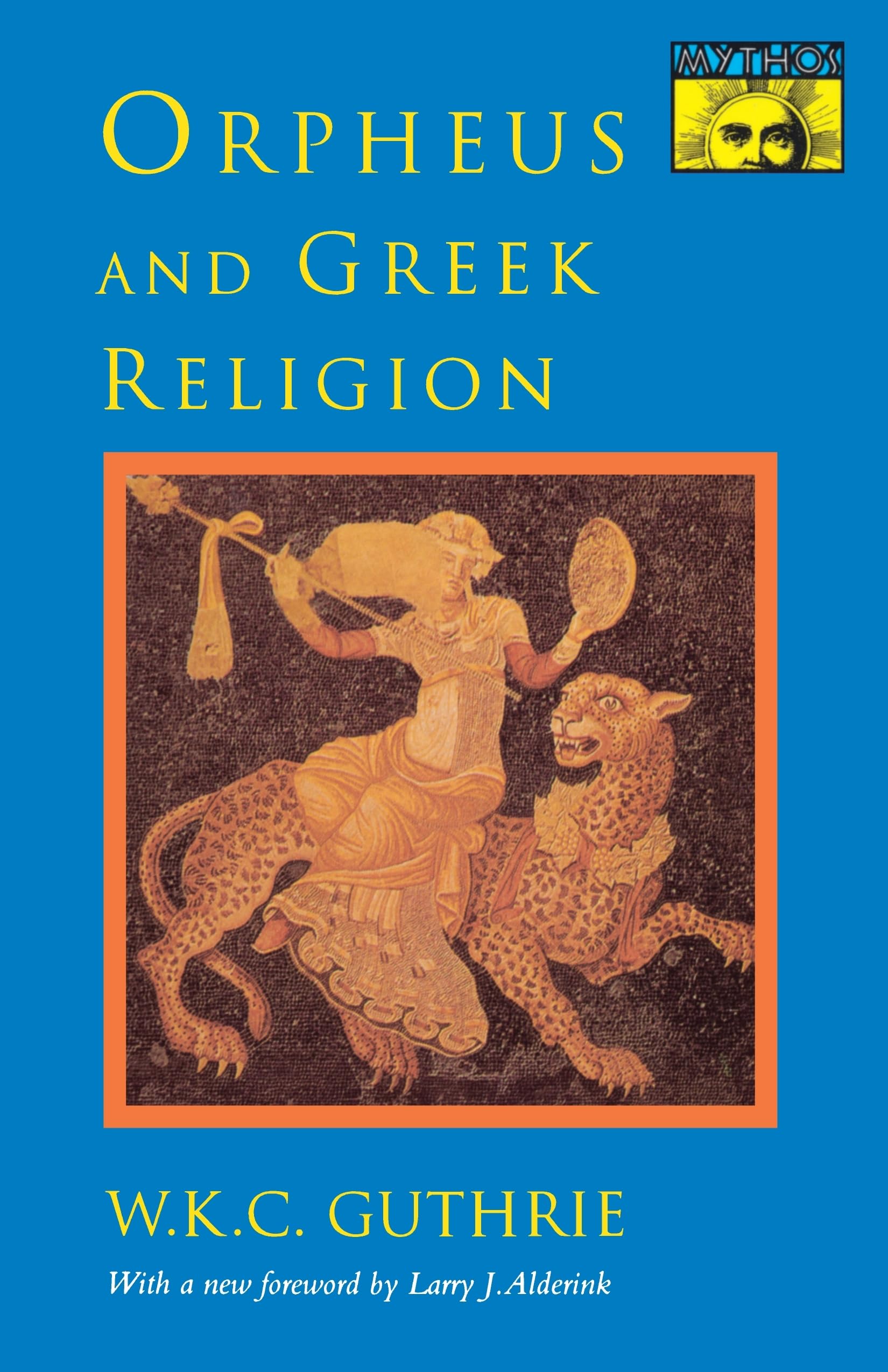

Orpheus and Greek Religion (Mythos Books): A Study of the Orphic Movement (Mythos: The Princeton/Bollingen Series in World Mythology)
M**B
Orpheus and Greek religion. W.K.C. Guthrie
The fact that Princetown decided to republish Guthrie’s seminal 1953 study in their Mythos series, some fourty years later, speaks for itself. The name Orpheus evokes the story of him looking back to see if Eurydice is following him out of Hades – something which he has been explicitly told not to do, is but one of the stories or legends about Orpheus; and of course there are other stories where someone is told not to look back, and they do, with fateful consequences. Guthrie comes to the view that Orphism was not so much a religion in the sense that we understand the word, but an aspect of the worship of Dionysos, complicated by the fact that Orpheus at heart belongs to the traditions of Apollo, and Apollo is not only the god of light, but also a musician. So this is about as much about Orpheus as it is about Greek Religion, from the pre-Homeric age to the eventual dominance of Christianity, and the destruction of ancient cult centers and shrines such as the one at Eleusis, whose fundamentalism saw everything un-Christian as pagan – sounds familiar doesn’t it.I found this book fascinating, not only for its erudition and its scholarship, where when academic – so to speak, differences of opinion are discussed, they are discussed very simply, without any domination by coded jargon. In fact the use of drawings and photographs in the appendix at the end, suggest a much wider intended readership that a purely academic one. Guthrie is scrupulous in not being definitive about interpretations, of the gold plates with inscriptions found in Italy, which certainly some modern writers of Orphic matters, might rhapsodise about. His aim is balance, here is the evidence, it agrees or disagrees with other apparent evidence. The long section comparing Orphic and Pythagorean thought, is quite revealing: both shared a belief in reincarnation and the immortality of the soul; both shared a vegetarian diet as one conducive to purification; cosmology, quite different, the one preferring to rely on myth; and the other, very rational and mathematical. He complains – as a scholar, about Plato sometimes being ‘vague’ about the origins of some of the stories he tells, and there is an negative undercurrent regarding the Neoplatonists, but his reference framework is the wider Greek culture. It is not just Homer and Hesiod, but Pindar and the dramatists, and even historians like Herodotus and travellers like Pausanius. This is a lot more that just a book about a Greek Cult which has a superficial resemblance to Christianity, it is an over-view of the Greek world. Excellent.
T**Y
The in-depth summary of the various permutations of the Orpheus myth
This book offers a rare all-facets expose of the Orpheus myth, that which first introduced the notion of returning to life after seeing the hereafter, as well as the magic of music and desires of an alternate sexuality. There is no book quite like it if Orpheus is a subject you wish to know all about.
K**R
Horrible quality!
I just received my book and the quality of the product is extremely low. The cover is paper, which I expected, but it was not properly cut flush with the pages. Which means the cover paper extends out beyond the pages and if you sit it on a bookshelf, then the cover paper will start to bend. Shoddy work for a book that costs $47.00! I might give it an extra star if the content is good, so I might update this in the future.
Trustpilot
3 days ago
2 weeks ago